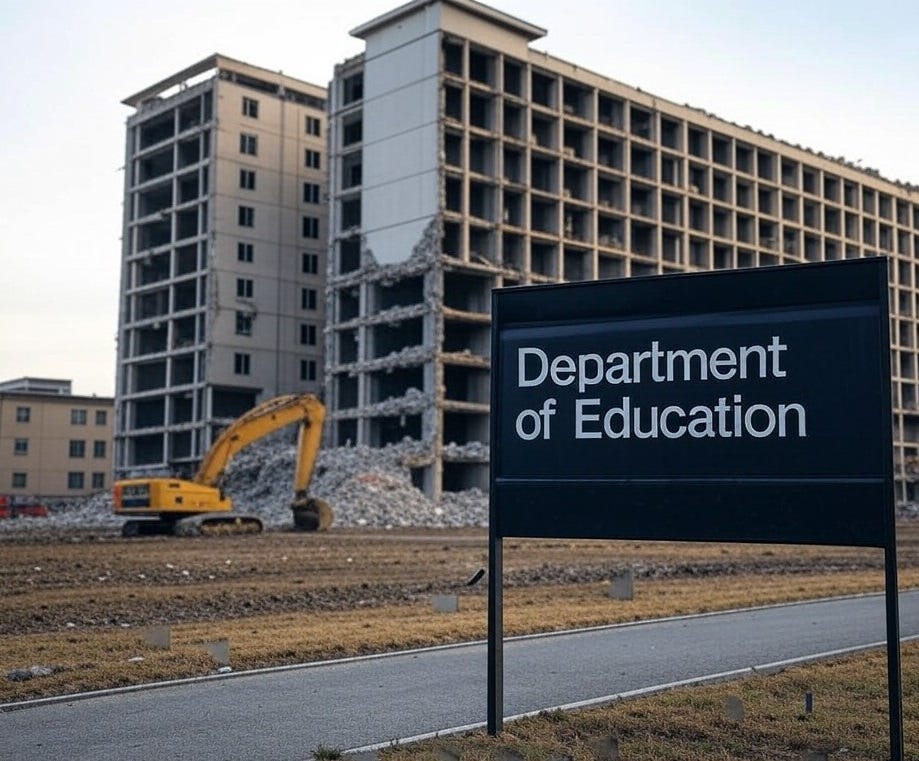The Trump Administration’s Plan To Dismantle the Department of Education: A Step Towards Post-Secondary Education Reform and Accountability
In a decisive move that has ignited both debate and optimism, President Donald Trump has proposed the dismantling of the U.S. Department of Education, with a particular focus on post-secondary education. This initiative, led by his nominee for Education Secretary, Linda McMahon, aims to overhaul America’s higher education system, addressing the criticisms of federal overreach, bureaucratic inefficiencies, and the decline in educational standards. What are the potential benefits of this plan, how will affect the corporate gain incentive for accrediting bodies, and why is Linda McMahon ideally positioned to spearhead this transformative journey.
The plan of dismantling the Department of Education specifically in relation to Post-Secondary education and schools has many benefits. By returning control to states, Trump’s plan could foster a more customized approach to higher education. This devolution of power allows states to innovate in areas like curriculum development, vocational training, and alignment with local economic needs, potentially improving educational outcomes and relevance.
The Department of Education has been criticized for its extensive bureaucracy, which some argue detracts from its core mission of supporting education. Dismantling it could lead to a reduction in administrative costs, enabling more funds to go towards student support, research, and infrastructure in higher education institutions.
The plan advocates for a more competitive educational landscape by promoting alternatives to traditional higher education models, such as online learning platforms or industry-accredited courses. This could drive universities and colleges to innovate, improve quality, or risk losing students to more agile competitors.
There exists in the current accreditation model the prevalence of corporate greed and financial motivation from institutions seeking accreditation status from them. The removal of federal oversight might initially give accrediting bodies more freedom, but it also risks them being swayed by corporate interests even more than it is now. Without stringent federal checks, there’s a potential for accreditation to be influenced by corporate agendas, prioritizing profit over educational integrity.
However, this shift could prompt a necessary reform in how accreditation works, aiming for a system where accrediting agencies are transparent, accountable to educational outcomes, and less susceptible to corporate or political influence.
With her business acumen, and background in growing WWE, Linda McMahon understands how to streamline operations, manage large organizations, and drive innovation, all of which are critical for managing and potentially dismantling a government department like Education.
McMahon is an advocate for educational choice and that extends to the post-secondary level, where she could champion alternatives like competency-based education, apprenticeships, or certifications over traditional degrees, tailoring education to the demands of the modern workforce.
Her tenure at the Small Business Administration and involvement in Trump’s transition team provide her with the governmental experience needs to navigate the complexities of restructuring or abolishing a federal department.
The decline of the U.S. higher education system has been linked to various issues, including the escalating tuition costs, the burden of student loans, and a perceived disconnect between education and employable skills. Critics argue that the Department of Education’s policies have contributed to these problems by focusing too much on standardized metrics rather than educational quality or relevance. Abolishing the department could encourage a shift towards outcome-based education, potentially reversing the decline seen in global competitiveness.
The initiative to dismantle the Department of Education under Linda McMahon’s guidance represents a significant shift in policy aimed at reforming post-secondary education in the U.S. It opens up avenues for addressing accreditation integrity and corporate influence while promoting a return to localized control. Whether this will lead to the revitalization of higher education remains to be seen, but it certainly sets the stage for a profound discussion on the future of education in America.




